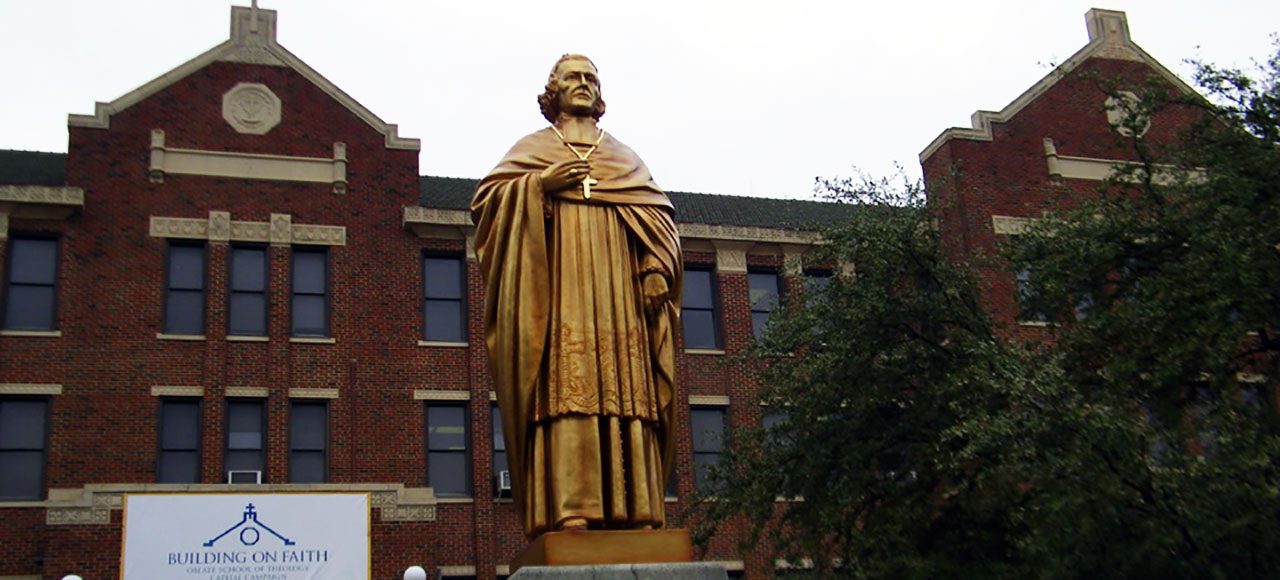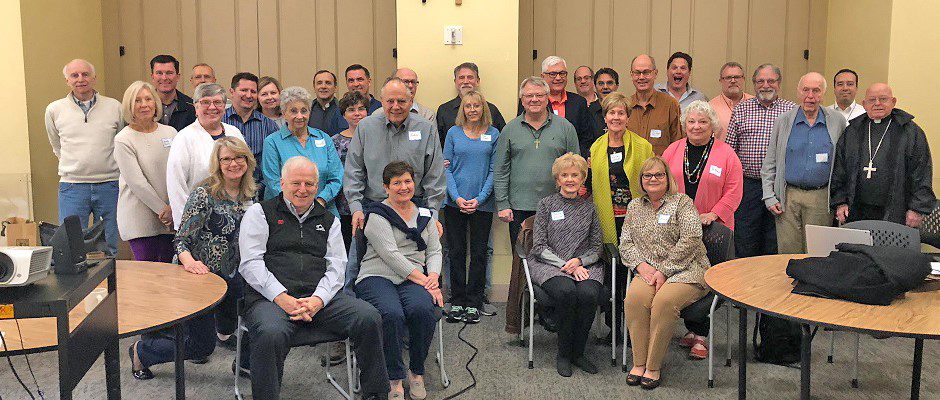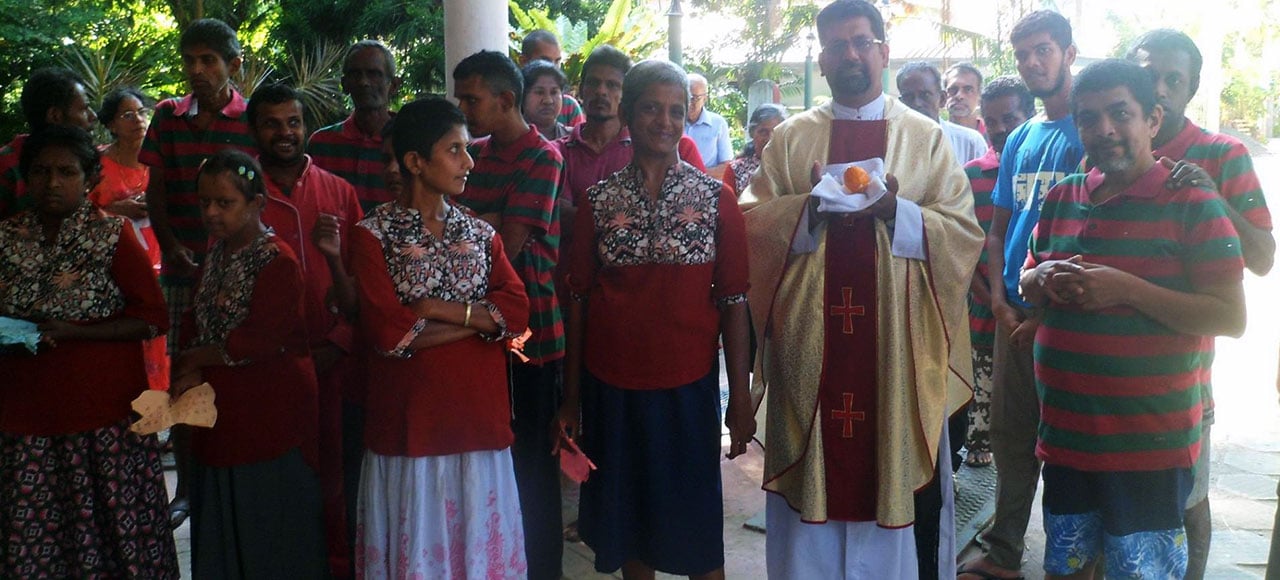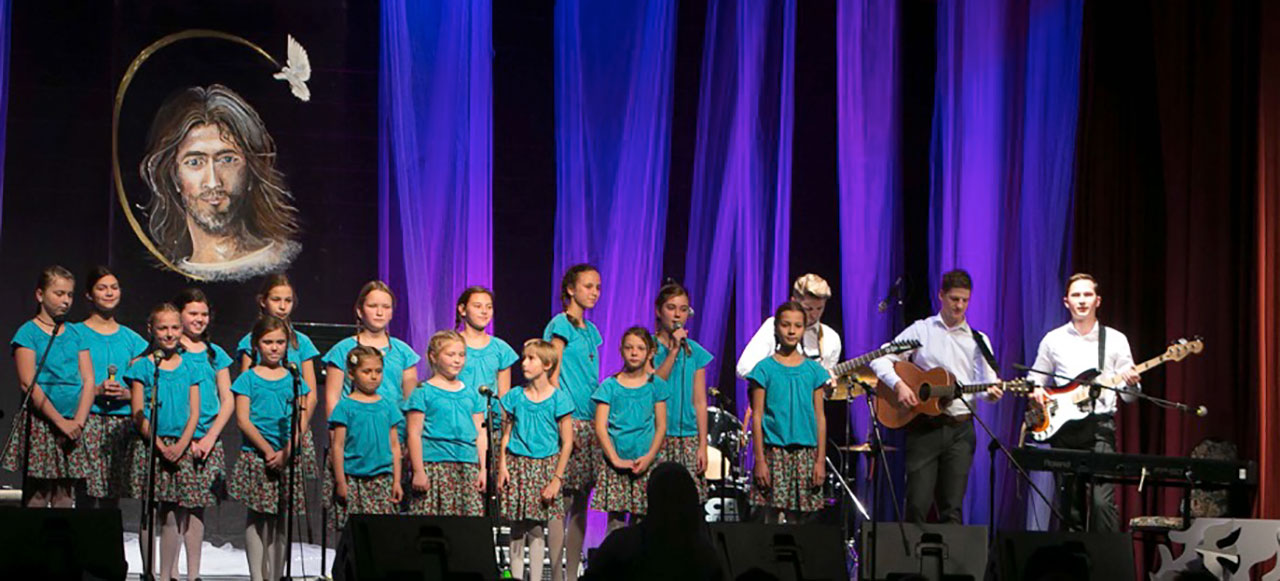The Missionary Oblate Partnership held its 7th Annual De Mazenod Conference over the weekend of February 9-11, 2018 on the campus of Oblate School of Theology in San Antonio, Texas.
This year’s conference brought the Partnership together with the U.S. Province’s Administrative Team to reflect and comment on three major areas of concern for the Province as it moves forward: “Sustainability,” “Ministry,” and “Vocations.”
Officially, the Partnership was formed in June 2006 in order to provide a new way for Oblates to engage with individuals and institutions who support the Oblate charism of evangelizing the world’s poor. The Partnership seeks to nurture a collaborative relationship between its members and the Oblates themselves.
Partnership President, Arthur Pingolt, states: “I think the Partnership has been kind of pushing an institutionally-reflective agenda, and it is obvious in our membership. We have a number of partners who are involved in Church leadership, whether it’s in the U.S. Bishop’s Conference, in the foundation world, or among our non-Oblate clergy partners. We also have theologians, writers, innovators…even a Muslim and a Jewish member… it’s a body that is growth-centered and question-asking, and I think the Oblates saw a variety of talent that they could draw on in an advisory capacity.”
The discussions began with keynote addresses featuring: Brad Myers, formerly Senior Program Officer at the Conrad Hilton Foundation, now a private consultant in the field of philanthropy; and U.S. Oblate Provincial, Fr. Louis STUDER. There were also presentations on specific conference topics by: Province Treasurer, Fr. James CHAMBERS (Sustainability); Vicar-Provincial–Office of Mission & Ministry, Fr. James BROBST (Ministry); and Vocations Director, Fr. Richard HALL (Vocations).
After two days of presentations and group discussions, the result was the formation of a working group that will narrow down the themes and specific suggestions from the meeting, which will then be matched with the Oblates, their resources, and convictions.
Looking back on the Partnership and its evolution over the years, Pingolt said, “Members started out being sort of a group of well-meaning and well-to-do individuals who really liked the Oblates and wanted to support them. I think we’re a much more diverse group than that now. Nevertheless, we’ll be continuing to deploy our resources in ways that advances the Province and the Charism. For example: this year we’ve launched the Partnership Mission Fund that responds to requests from Foreign Oblates. In this first year, that new fund has made grants to Oblate ministries in Chad, Mexico, India, Paraguay, Peru, Haiti and here in the U.S.”
“I also think we’ll continue to be an approachable resource when needed. For example: when the Province wanted to build the School of Theology in Zambia, the Partnership funded nearly three-quarters of it. The Partnership also provided nearly 60% of the funds for the new residences at the Oblate Scholasticate in San Antonio.”
Information about the Missionary Oblate Partnership as well as the latest news on their activities is always available on: www.oblatepartnership.org. (Willard Shaw on www.omiusa.org )



